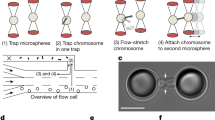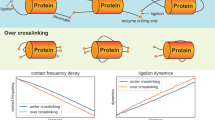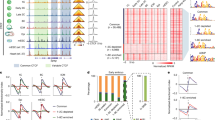Abstract
GREAT advances in cytogenetics resulted from the use of the Feulgen ‘squash’ technique after pretreatment of cells with hypotonic solutions and colchicine. The cells are submitted to the action of colchicine chiefly to inhibit spindle formation, thus causing accumulation of metaphases and dispersal of chromosomes in the cytoplasm; in addition, the drug has the valuable effect of shortening the chromosomes and inducing sister chromatids to diverge, thus making clear the position of the centromeres. In this way, the whole character of the chromosome is easily and quickly recognizable. For these reasons colchicine is widely employed in plant and animal cytogenetics.
This is a preview of subscription content, access via your institution
Access options
Subscribe to this journal
Receive 51 print issues and online access
$199.00 per year
only $3.90 per issue
Buy this article
- Purchase on SpringerLink
- Instant access to the full article PDF.
USD 39.95
Prices may be subject to local taxes which are calculated during checkout
Similar content being viewed by others
References
Dittman, W. A., and Ward, J. R., Amer. J. Med., 27, 519 (1959).
Ford, C. E., and Hamerton, J. L., Stain Tech., 31, 247 (1956).
Author information
Authors and Affiliations
Rights and permissions
About this article
Cite this article
BOTTURA, C., FERRARI, I. A Simplified Method for the Study of Chromosomes in Man. Nature 186, 904–905 (1960). https://doi.org/10.1038/186904a0
Issue date:
DOI: https://doi.org/10.1038/186904a0
This article is cited by
-
Chronic myelogenous leukemia and exposure to ionizing radiation — a retrospective study of 443 patients
Annals of Hematology (1995)
-
Myelokathexis: Chronic neutropenia with hyperplastic bone marrow and hypersegmented neutrophils in two siblings
Blut (1981)
-
Study of human chromosomes by a direct method from bone marrow
The Indian Journal of Pediatrics (1966)
-
In vivo Incorporation of Tritiated Thymidine in Acute Leukæmia Chromosomes
Nature (1963)
-
A Simplified Method for the Study of Chromosomes in Man
Nature (1961)



